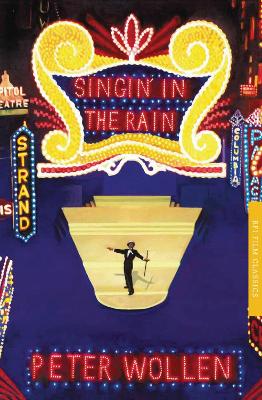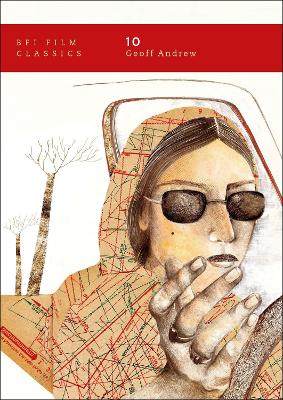BFI Film Classics
2 total works
Sixty years after its release, Singin' in the Rain (1951) remains one of the best loved films ever made. Yet despite dazzling success with the public, it never received its fair share of critical analysis. Gene Kelly's genius as a performer is undeniable. Acknowledged less often is his innovatory contribution as director. Peter Wollen's illuminating study of Singin' in the Rain does justice to this complex film. In a brilliant shot-by-shot analysis of the famous title number, he shows how skilfully Kelly weaves the dance and musical elements into the narrative, successfully combining two distinctive traditions within American Dance: tap and ballet. At the time of the film's production, its scriptwriters Betty Comden and Adolph Green, and indeed Kelly himself, were all under threat from McCarthyism. Wollen describes how the fallout from blacklisting curtailed the careers of many of those who worked on the film and argues convincingly that the film represents the high point in their careers. In his foreword to this special edition, published to celebrate the 20th anniversary of the BFI Film Classics series, Geoff Andrew looks at the film's legacy and celebrates the passion, lucidity and originality of Wollen's analysis. Summing up its enduring appeal, Andrew writes: 'Singin' in the Rain isn't just a musical, it's a movie about the movies.'
The Iranian director Abbas Kiarostami burst onto the international film scene in the early 1990s and was widely regarded as one of the most distinctive and talented modern-day directors. His major features - including Through the Olive Trees (1994), Taste of Cherry (1997) and The Wind Will Carry Us (1999) - are relatively modest in scale, contemplative and humanist in tone. In 2002, with 10, Kiarostami broke new ground, fixing one or two digital cameras on a car's dashboard to film ten conversations between the driver (Mania Akbari) and her various passengers. The results are astonishing: though formally rigorous, even austere, and documentary-like in its style, 10 succeeds both as emotionally affecting human drama and as a critical analysis of everyday life in modern Tehran.
In his study of the film, Geoff Andrew considers 10 within the context of Kiarostami's career, of Iranian cinema's renaissance, and of international film culture. Drawing on a number of detailed interviews he conducted with both Kiarostami and his lead actress, Andrew sheds light on the unusual methods used in making the film, on its political relevance, and on its remarkably subtle aesthetic. He also argues that 10 was an important turning-point in the career of a film-maker who was not only one of contemporary cinema's most accomplished practitioners but also one of its most radical experimentalists.
In his study of the film, Geoff Andrew considers 10 within the context of Kiarostami's career, of Iranian cinema's renaissance, and of international film culture. Drawing on a number of detailed interviews he conducted with both Kiarostami and his lead actress, Andrew sheds light on the unusual methods used in making the film, on its political relevance, and on its remarkably subtle aesthetic. He also argues that 10 was an important turning-point in the career of a film-maker who was not only one of contemporary cinema's most accomplished practitioners but also one of its most radical experimentalists.

